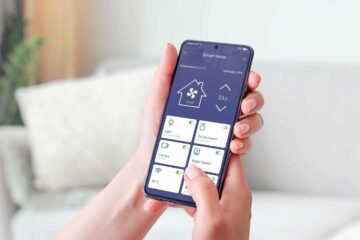- 80% of all home buyers are searching online
- 83% of home buyers see pictures of the property online
- 52% of the prospects used an iPhone in their home search
- 49% of the leads come via referrals
- 91% of realtors use social media to list real estate properties
- 33% of first-time buyers research for real estate properties online
Reference Site: https://www.nar.realtor/sites/default/files/reports/2017/2017-real-estate-in-a-digital-age-03-10-2017.pdf
Reference Site: https://gcaaltium.com/wp-content/uploads/2019/02/GCA_Real-Estate-Technology-Q4-2018-Review.pdf
There has also been a transformation in site visits since the past few years. It is said that by the year 2025, nearly 20 million households in the US would be owned exclusively by folks in the millennial generation. Hence, there needs to be a change in the way real estate is marketed and sold. Let’s take a look at how we can turn the tables around in this rapidly changing market.
First Step: Online Viewing of the Property (Searching and Listing)
There are already three brands that have made their place in the market:
Nobul.com is an online Canadian real estate marketplace that allows agents to compete for clients. It allows buyers and sellers to compare the agent’s services. Interested agents can then reach out with their offerings. Nobul charges agents a 20-basis point referral fee – $2,000 per $1 million of real estate value – for closed deals.
Property Whispers is an Australian matching platform that covers the residential marketplace, including real estate that’s advertised for sale and that’s for sale off-market. The platform is well-known amongst agents, brokers, and vendors since it helps them get the contact information of matched buyers. In a world where traditional advertising campaigns cost thousands of dollars, the platform charges agents only $99 plus GST per listing (with a free trial provided). Private vendors, in turn, pay only $139 plus GST to list their properties.
Homes.com has a Snap & Search feature that allows buyers to take a picture of the real estate that they wish to buy and the service helps them find a similar one. The platform also allows the buyer to navigate to their ideal location providing average area pricing. Filters such as “must-have” and “around” (for approximate pricing) enable buyers to find relevant listings. All property results have a match score on a scale of 0 to 100, showing how closely a property matches the buyer’s preferences.
In the distant future, there are going to be multitude apps with key features like location based, VR technology and more.
Second Step – Real Estate Showings (Viewing the Property)
Once the property has been listed, the next step is the buyer going to tour the property. Time is todays money; hence, technology has stepped in. Real estate apps can conduct showings online. According to a report by the NAR, 10 weeks was approximately the time spent by buyers to find a property (in the year, 2018).
There are two ways of real estate showings:
- By booking an appointment to view the property
- Virtual tours – where the buyer can see the property and its features online
For easy offline home tour bookings; the buyer can use:
The Redfin Aggregator asks the buyer to fill in the form of a “Go Tour This Home” option on listing pages. The buyer can also choose their preferable time and date. A lightning bolt symbol by the time slot means that it has been confirmed and accepted by the listing agent.
Another way is by using the Showing Suite app. This app is tailored to schedule property viewings through text messages. When an agent signs up, they can import their active MLS listings to the platform. Then agents can activate a Showing Robot on those listings to automate scheduling. They can also customize how they and their sellers prefer to be notified of new showing requests and confirm them manually.
For virtual tours and video walkthroughs; the buyer can use:
Zillow à Zillow 3D Home feature, a free platform for listing agents. Agents just have to capture panoramas and the app automatically creates a tour.
Realync is an app that is solely dedicated to virtual tours. It allows buyers, agents and sellers to interact via live video and audio, take pictures and notes, and send messages. Each tour file is automatically saved to the cloud for later access and sharing.
The Zillow Real Estate app (iOS only) can be used to show walkthroughs, i.e. short videos of a listing recorded by a mobile phone or some other device. As an intermediary between a seller and buyer, agents strive to ensure stable communication until the deal is closed. The best way to do that is in-app messaging.
Another app that can be used for showings is the Periscope app. It is a live-streaming app by Twitter It allows anyone to film any event they want. This is what is required for an open house! Periscope can help buyers, sellers and agents to sell homes if it is not possible for any party to make it physically to a showing.
Third Step – Digital Documentation
After the showing is done and the buyer decides to buy the property, he/she no longer needs to run around pillar to post like before. Today, there are several websites and automated tools available that take a fraction of the time needed earlier to prepare all documentation.
If engaged early during the transaction, these portals record and manage each step:
- Documents needed for the first visit pre-requisites to transaction-related documents
- Payment information
- Ongoing rental revisions
Such portals also allow direct validation credentials with government authorities, enable digital verification of documents, and help with other legal requirements. For the buyer, this means transparent pricing and taxation, transparent and legal payments and the elimination of fraudulent transactions.
The real estate industry involves huge quantities of signed paper documents which must be kept for several years due to legal purposes. Staying organized, finding documents on time and making sure you have all the right papers with you when showing a house can be complicated. In today’s era, the buyer, seller or agent can opt for digitized:
- Signature cards
- Leases
- Contracts
- Loan agreements
- Affidavits
- Assignment of liens
- Purchase agreements
- Real estate disclosure forms
- Financials
- Work orders
- Move–in and move-out documentation
- Notices
- Invoices
This would help realtors save time, boost productivity and increase room in the workspace.
Some the real estate apps include:
- Follow Up Boss for centralizing communication
- Folio for organizing your inbox
- Cloud Attract for building real estate-specific landing pages
- Wise Agent for real estate marketing automation
- LeadSimple for reporting on real estate leads and sales
- LionDesk for recording and embedding videos into emails and texts to bring properties to life
- Mojo Dialer for dialing real estate leads
- Showing Suite for scheduling home viewings via text messaging
- Spacio for digitizing open house sign-in forms
- Magicplan for digitally creating floor plans and furnishing rooms
- PalmAgent ONE for estimating closing costs
- Disclosures.io for organizing and sharing disclosures
- DocuSign for signing offers and closing documents
To Conclude
Every good thing comes with its own set of challenges. Similarly, online transactions and interactions could also prove to be a death-wrenching experience if gone wrong. Ensuring that the opposite party, i.e. the buyer, seller or agent that you are speaking with is genuine. Apps like Silent Beacon and Trust Stamp are tailored to ensuring realtors’ safety.
As per the recent trends, there has been a speculation that the agents in real estates will be redundant since all the formalities can be taken care of through different apps and digitalization.
There are also speculations that the Bitcoin market will have a gigantic impact on the financial transactions that are done in the real estate industry. This technology is considered to be a secure system because cryptology is used to ensure that nobody can intermingle with the timestamps or blocks. If somebody does so, there is digital evidence in the system. This makes it ideal for handling data structure and to keep track of records of anything that is valuable, such as financial transactions. A significant benefit of Blockchain in real estate will be an immediate reduction in service fees.
So, if you wish to know more about how to digitalize the real estate industry or make an app for the real estate industry; feel free to contact the App Scoop Vancouver mobile app developers and app development team: https://app-scoop.com/






